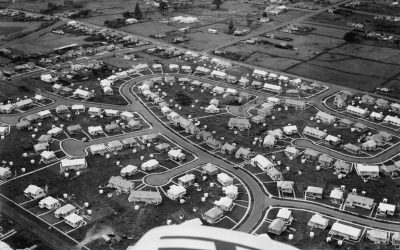Built during the war, it’s a two-bedroom, 786-square-foot house that backs onto the railway tracks in Esquimalt.
And at $330,000, it’s the cheapest traditional, singlefamily house on the Greater Victoria MLS, one of a mere two dozen priced under $400,000.
Just something to think about following the release of yet another hand-wringing report, this one from TD Economics, warning Canadians in general, and British Columbians in particular, that they could be in trouble carrying so much debt -which is a bit like being advised to outrun a lion. Thanks, didn’t know we had the choice.
Well, we do and we don’t. High expectations and low interest rates have fostered lousy spending habits. But jeez, what are Victorians supposed to do if they want to own their homes?
For decades, conventional wisdom said your house should cost about 2 1 /2 times your family income. But a study released by the Frontier Centre for Public Policy two weeks ago showed the Canadian average price-to-income ratio is now 4.6 to one.
Victoria, where the median house price -including condos and townhouses -of $430,000 is 7.1 times the median household income of $60,900, is the second least-affordable city in Canada, trailing only Vancouver, the Frontier report said. The survey of 325 cities (the others were in the U.S., the U.K., Ireland, Australia, Hong Kong and New Zealand) ranked Victoria 16th least-affordable, tied with Adelaide, Australia and the exurbs of London, England.
If your heart is set on a detached single-family home, where the median price was $576,000 in January, Victoria’s ratio rises to 9.5 to one. That might be manageable when interest rates are low, but rates can move. Two-thirds of Victorians own their homes; six in 10 homeowners have a mortgage.
So far it has all worked out OK. If you bought 10, 20, 30 years ago, you’re probably pretty happy with your investment. Its value did not, as did your retirement fund, vanish like Ian Thow when the stock market took a header in 2008, leaving you working on the Freedom 85 plan. Victorians think of their house as their insurance against poverty, their wood-frame parachute: If all else fails, you can sell up, buy a sod hut in Big Bonspiel, Sask., for $4,000 and live off the interest until killed by frostbite.
Ours is a real estate roller-coaster that has mostly gone up (when we did this story in 2003, the cheapest house was $155,000). Scary jumping on the ride, though, particularly as the entry fee rose faster than income. And only those looking up from the ground want to see a descent.
The numbers are stunning. Real estate agent Jerry Bola recently listed a 99-year-old, two-bedroom house on Vincent Avenue, off the Gorge, for $379,999. Maybe the buyers will renovate it, maybe they’ll knock it down, which seems like a funny thing to do with something into which you just poured that much money. But look at it this way, Bola says: With building lots scarce in the core, the land itself is worth close to that. "The house is free."
Darron Hambley, who wrote the $330,000 listing in Esquimalt, figures the Lockley Road home would suit a first-time buyer who wants a dog or garden and doesn’t like the strata fees of a townhouse.
Judy McIntyre just hopes the house is purchased by someone nice, because that’s what the neighbours deserve. Judy and husband Daryl bought the place 20 years ago for $139,000. It’s a dead quiet neighbourhood (except when the train rattles past twice a day) but after selling her dad’s old home (it was torn down to make room for a monster house in Saanich) she can afford more elbow room.
"All our friends are downsizing," she says, "but I said if we downsize, we’d live in our car."
That’s the other consideration: You have to live in your investment. There’s a reason Victoria is expensive.
Want to escape debt? The most affordable city in Canada, with a price-toincome ratio of just two to one, is Windsor, Ont., a ricochet across the river from Detroit. You go first.


